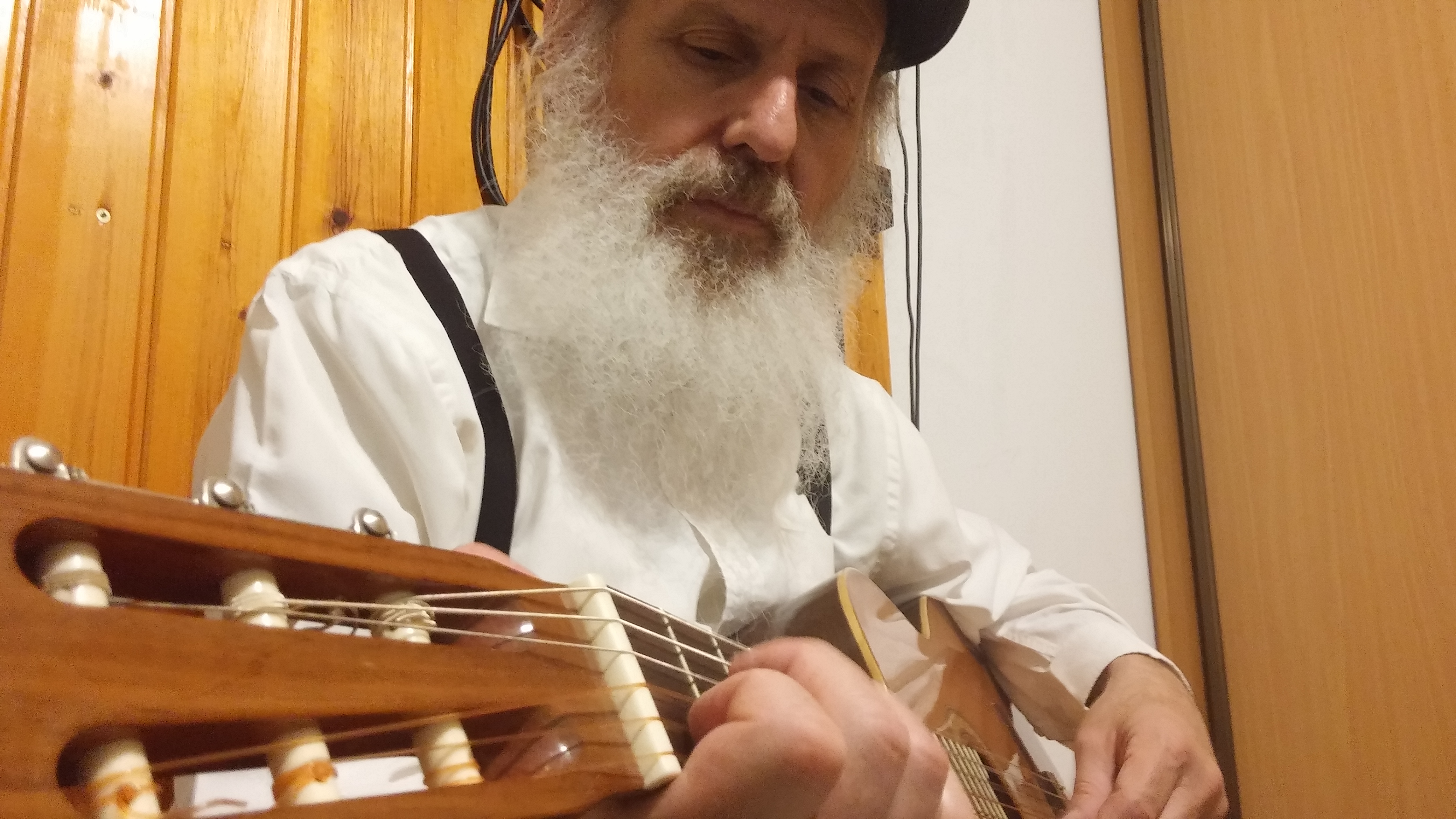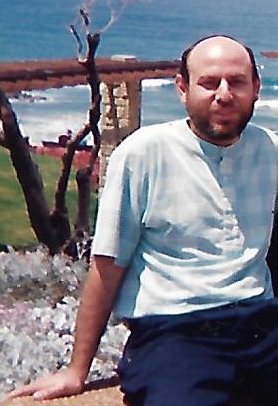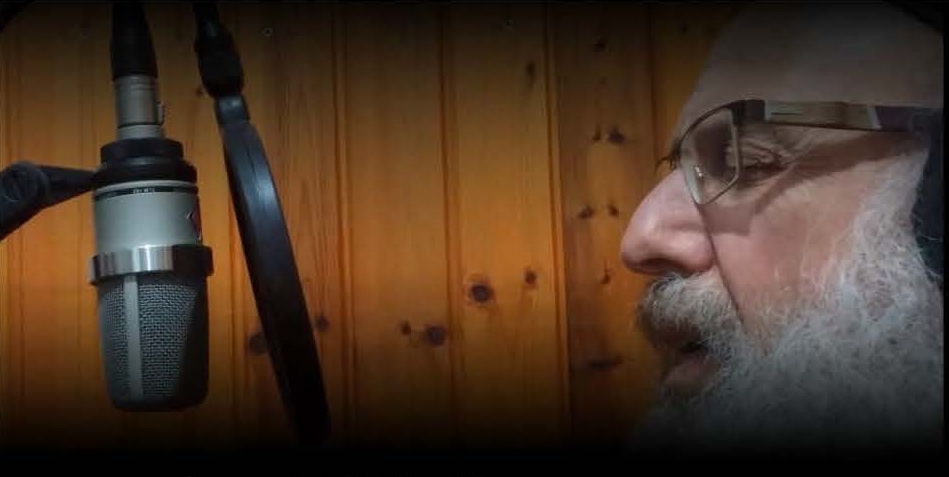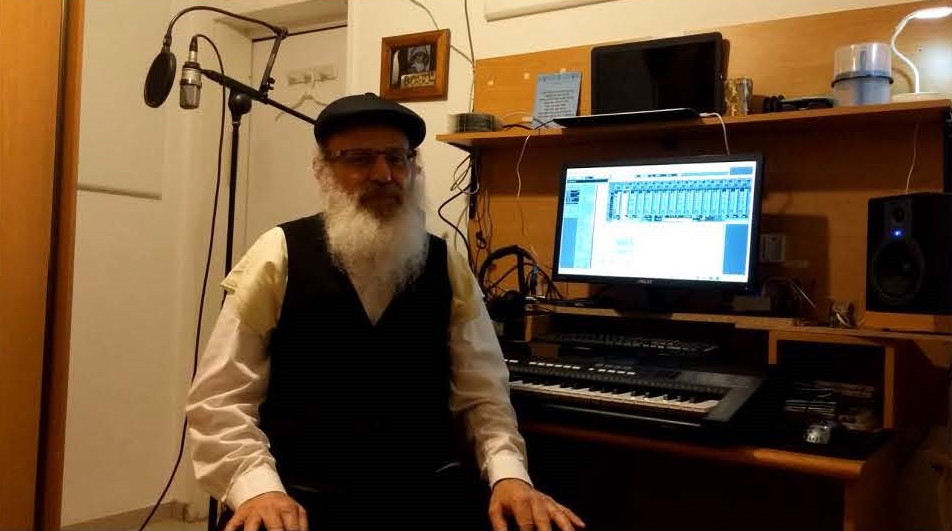"When the Doctors Heard My Answer, They Shouted at Me"
An underground album featuring Yosef Karduner, miraculous events in the Lebanon War, and a blessing from Rabbi Elazar Abuhatzeira that changed his family's life forever. For the first time, creator Moshe Yaakov Ben Aroya shares his story in a special interview.
 Moshe Yaakov Ben Aroya
Moshe Yaakov Ben AroyaThe murder of Rabbi Elazar Abuhatzeira, the holy grandson of Baba Sali who lived in Be'er Sheva, is well remembered throughout the Jewish world. However, for Rabbi Elazar's close followers, the event was particularly significant. "There are no words to describe the loss. A few days before it happened, the Rabbi said he was going to sacrifice himself to annul a very harsh decree on the People of Israel," says Moshe Yaakov Ben Aroya, who was guided by Baba Elazar since his early steps in the world of repentance.
"I came to Rabbi Elazar when I was just beginning my journey of repentance, still dressed in secular clothing, and he guided me for over 25 years. One of the most moving things Rabbi Elazar told me was that the talent I was gifted with, to compose and write songs, was a gift I should use to benefit others."

"Beyond that," continues Ben Aroya, "a person's name is a very significant matter, and my name 'Moshe' was given to me by Rabbi Elazar. He learned that I was named after someone who was killed in the army, and he advised me to add another name, because it is written in holy books that it is not good to be named after someone who died prematurely."
"But the highlight, which I cannot explain in words, was the decree that Rabbi Elazar issued regarding our fertility issues, which led to the birth of our first son shortly after. After 15 years of treatments and failures, Rabbi Elazar also served as his sandek at the circumcision."
"Thank God, I have done many things in my life. I am a technician in a recording studio, editing and recording both audio and video, producing music for artists and films, performing documentary narration, making films, and more. Faith stories I've recorded have reached all over the world, and I've also been fortunate to broadcast on many radio stations. But one of the most exciting events in my life was when my son Shimon sang my song 'The Stones Tell Stories' with me. I don't write and compose for profit, but to benefit the public, and I'm so happy when that succeeds."
Bullets Whizzing in Lebanon
Ben Aroya (58), married and father of two children living in Safed, was born and raised in the village "Tzur Moshe" in the Sharon region, affiliated with the labor movement, which mainly consisted of Jews who immigrated from Greece, Turkey, Bulgaria, and the Balkan countries.
"My family was a family of musicians," recounts Ben Aroya. "My grandfather played the oud in Turkey. My late father played the harmonica. My uncles and cousins also played instruments. However, at a young age, I broke my hand. I was always mischievous, and one day I fell from a very tall tree. I was always singing, got lead roles in school plays, but the broken hand meant my wish to learn guitar remained just a wish. To this day, it affects me and I can barely play a few chords on the guitar."
After high school, Ben Aroya joined the army and served in a special unit created following the disbandment of Sayaret Shaked. "I served about twenty kilometers from the Suez Canal, and we facilitated the evacuation of Sinai under the peace agreement with Egypt," says Ben Aroya. "My battalion was always the first to respond to alerts. We were always in the field, in the deserts, ascending and descending the Golan Heights, navigating to Eilat, and eventually, I signed up for career service."
 Moshe Yaakov Ben Aroya in his youth
Moshe Yaakov Ben Aroya in his youth"I never told anyone in the army that I had broken my hand. I didn't want them to know. In our village, it was instilled in us that doing good is very important. Back then, the kibbutzniks and villagers were fighters. During that time, I was very drawn to amplification and sound. I was also a DJ, and unfortunately organized parties and similar events."
"Then the First Lebanon War broke out, and what happened to us there is hard to describe in words. We experienced many miracles there, and in Lebanon, I had my first awakening to Hashem. During the war, my life was saved in clear miracles several times. One night, for example, we captured a school that had been occupied by Syrian soldiers."
"The next morning, I got up and saw a friend of mine putting on tefillin. I didn't know how or why, but I felt that this would save me. That it would bring me home safely. I approached that friend and asked if I could also put on tefillin. He agreed, of course, and also taught me how to do it as I had no idea."
"Later that day, just a few hours afterward, I was standing next to an armored personnel carrier when suddenly a missile penetrated it. A split second before it happened, someone moved me, and the missile exited the vehicle exactly where I had been standing. Additionally, I'll never forget the bullets that chased after me but did not hit me. A few days later, a Scud missile fell between two fuel depots we had, and by a clear miracle, no damage occurred."
How did these events affect you spiritually?
"The truth is, it was a flash moment. Everything disappeared for me after the army. After being discharged, I took a broadcasting course at Galei Tzahal, and ventured into sound engineering. I worked installing sound systems in various places, always living around music, until I got married at 25 and turned to the business world. I owned an insurance agency office and, thank God, I was very successful in it."
"During this period, for some reason, I began to receive signs and feel things, realizing that no one stays here permanently. That everything is temporary. This prompted me to start examining and searching. We then lived in Rishon Lezion, so I connected with a local Chabad emissary, wrote to the Lubavitcher Rebbe, and he responded to me. Gradually, we accepted Torah and mitzvot. Even during those years, we tried to have children but were unsuccessful. I started learning at a kollel and spent some time at 'Or HaChaim' with Rabbi Elbaz, and gradually I was also exposed to Rabbi Nachman's teachings, accepting his advice such as seclusion."
"The matter of composing and singing, which I later engaged in extensively, was opened up to me precisely in these moments of seclusion. When alone, I felt like I was speaking to Hashem, singing to Him, and tunes just began to fall from the heavens. What I remembered, I remembered, and what I did not, I did not."

"Years went by like this, things fell into a good routine, but the matter of children still hadn't opened up. We tried many things, nothing helped, and finally, we understood it was a decision from Heaven. That there was simply a decision to delay this. The turning point came when one day my wife felt she could no longer bear the anticipation, and we decided to visit Rabbi Elazar."
"The Rabbi did not meet with women, so she wrote him a letter. I delivered the letter to the Rabbi, and immediately after he finished reading it, he sighed a heartbreaking sigh. It was clearly painful for him personally and intensely. There were three other people in the room besides him, and then, for the first time, he promised me and said, 'You will have children. And they will sit on my knees.' I cannot describe the happiness I felt following that promise. I knew that when a tzaddik decrees, Hashem fulfills."
Difficult Embarrassments Leading to Salvation
To much surprise and wonder, that's when the miracles just started. Ben Aroya's wife became pregnant with twins, but all the medical tests indicated that the twins were endangering each other and medical intervention was needed. "We were blessed with twins," Ben Aroya recounts, "but one of them passed away immediately after birth. He had a genetic issue in his head that threatened the life of the healthy child."
"The truth is, the doctors wanted to remove him as early as the fifth month of pregnancy. We consulted Rabbi Elazar, and he told us not to listen to the doctors. He said, 'If you have faith in sages, you will see miracles beyond reason.' When the doctors heard my answer, they shouted at me that I was a murderer and humiliated me. They claimed the sick child would kill the healthy one. However, I did not give up."

"I went through four very difficult months. It's hard to describe. In the end, the birth was high-risk. Many senior professors attended it, and it also lasted many hours. Ultimately, both children were born in a natural birth, and the healthy child came out alive and intact, against all their expectations."
"However, as expected, the second son passed away. He passed away on Shabbat afternoon, at the time when the righteous pass. People knowledgeable about such matters told me that it was the soul of a tzaddik that needed to come into the world. A tzaddik who learned all the Torah in the womb, and he is my son in every respect, now advocating on my behalf. When we came to Rabbi Elazar after the birth, he brought me into the room and asked that I tell everyone about the great miracle we experienced."
Four years after the birth of their first son, the Ben Aroya couple had another son. "In this matter, I can say that I made a vow on Lag BaOmer at Rabbi Shimon Bar Yochai's grave, and it was answered," says Moshe Yaakov, continuing to weave his life's story. "During that time, I began recording conversations of faith and strengthening on disks, and I saw that people were greatly encouraged by it. So, I did it more and more."
"After some time, we moved to Beit Shemesh, and I set up a home studio where I could continue recording the disks and telling the stories. A friend I met connected me with Rabbi Erez Moshe Doron, I started editing his talks, and we also broadcast radio programs together."
After a short while, I played him some songs I had written and composed, and he pushed me to release them on a disk. That's how the album 'Mysteries of the Heart' was born, which achieved great success, broadcast on 'Kol Barama,' 'Kol Chai,' and other stations. It pleased me very much because it was essentially an underground album without public relations and all the accompanying trappings. I worked on the second album I released, 'To Be in Your World,' with my friend Yosef Karduner, who produced it and contributed greatly to it."
"Later," continues Ben Aroya, "we decided to move to Safed. Also, the studio part developed greatly. I don't perform because I am not drawn to publicity and so forth, but thank God, I receive a lot of feedback from Israel and abroad, and hear that it makes people feel good and strengthens them."
"Meanwhile, two years ago, I released a song to the media for the first time, 'The Stones Tell Stories,' with public relations and everything. It was also well received. Rabbi Pinchas Abuhatzeira, the son and successor of Rabbi Elazar, told me that he hears people return to religious observance because of my songs and the stories I tell. He asked me to continue doing this more and more."
"However, I told the Rabbi that this costs a lot of money, and he responded by telling me to look for people who can assist. The Rabbi asked me to do everything I can, even if it is difficult because this is a gift from Hashem, meant to benefit the many. So far, I've released five songs on YouTube, and some have also been played on the radio."
"I don't do this for profit," says Ben Aroya at the conclusion of our conversation, "but to benefit the public. Anyone who wants to help in this regard can search for my project on Headstart. Even though I was raised in a family of musicians, and music has always been part of my life, for many years I didn't realize I was talented at writing, composing, and singing. Today, I try my best to use this gift to do as much good as I can."

